
Top ASMRists Aiding the Nighttime Ritual

Top ASMRists Aiding the Nighttime Ritual
What is ASMR, and why does ASMR make you sleepy? Autonomous sensory meridian response (ASMR) sufferers report the sensation as extremely calming, with a static feeling over the head, back of the neck, shoulders, and sometimes elsewhere in the body. People have likened it and connected it to the frisson or shivers many experiences while listening to music. On the other hand, ASMR is elicited by crisp or quiet noises, either alone or in combination with conservative movement or personal attention. Some ASMR-inducing films incorporate visual clues, which seem to influence the reactions of some individuals.
Whether you’ve used ASMR to help you sleep in the past or you love its potential advantages, it’s worth researching how it works and the best ASMR for sleep.
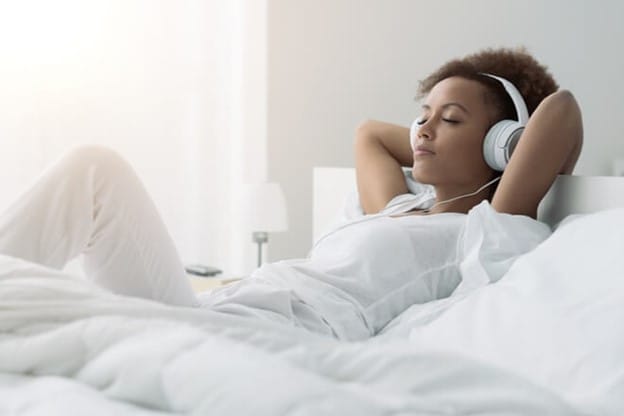
Part 1: Why does ASMR help you sleep?
Due to the recent discovery of ASMR sleep videos, research into its mechanism is still in its infancy. Researchers have assumptions about how ASMR works, and the conducted research gives fascinating data.
Researchers did fMRI brain scans on participants experiencing ASMR in one investigation. During the ASMR tingle, participants in the research demonstrated activity across their brains, known as whole brain activation. There was also intense activity in the brain region involved with self-awareness, social comprehension, and social movements in nonhuman primates, including grooming behaviors. Because the effects of ASMR for sleep are comparable to those of social grooming in monkeys, the researchers hypothesized that it might be a grooming response that survived evolution.
So, does ASMR help you sleep? Let us find the answer in the subsequent paragraphs.
ASMR is a social reaction, which explains why it increases feelings of comfort, relaxation, and drowsiness. ASMR engages brain parts connected with chemicals such as dopamine, oxytocin, and endorphins, which may boost these experiences. It may also explain why some personality traits, particularly openness to new experiences, seem to enhance the likelihood of someone having ASMR.
ASMR, on the other hand, maybe more sophisticated than this idea predicts. While most individuals who experience ASMR find it calming, it also tends to cause heightened excitement and non-sexual physiological arousal. Nostalgia is a complicated experience that could be both pleasant and sad, and ASMR may be a complex reaction that is both relaxing and exciting. ASMR links with brain connectivity. According to one research, persons with it have diminished functional connectivity or a typical connection in particular brain parts.
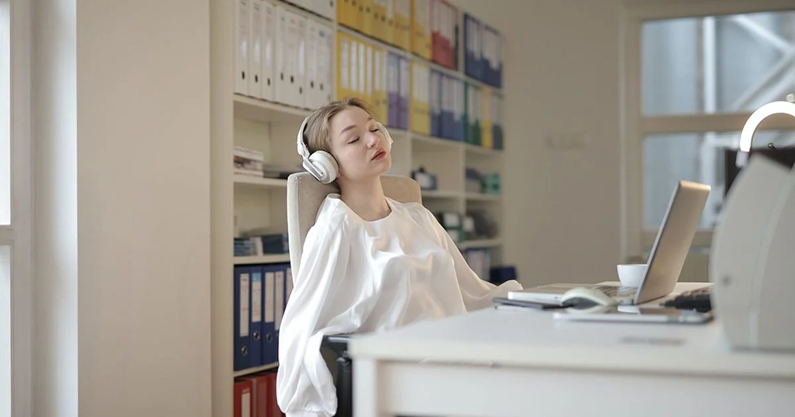
 Project Manager - Asset Browser for 3Ds Max
Project Manager - Asset Browser for 3Ds Max
Part 2: Best ASMR Channels for Sleep
Although not everyone, most individuals tend to experience ASMR for the first time between the ages of 5 and 10, though some people experience it later in life. Although ASMR is a relatively recent phenomenon, individuals have been experiencing it for quite some time. Here are the best ASMR channels for sleep in terms of different categories.
1. Talking ASMR
ASMR Glow: Glow has developed into a formidable but unassuming force, taken into account. She is not only supposed to be one of the most talented ASMR for sleep performers but also a makeup artist and a YouTuber who sometimes offers celebrity-inspired tutorials. With 1.5 million subscribers, ASMR Glow explores some of the most popular relaxations and sleep triggers, such as mic scratching, slow tapping, finger fluttering, and light triggers.
Subscribers: 1.44M+
Pure Unintentional ASMR: This YouTube channel is quickly becoming one of the most well-known examples of unintended ASMR on the Internet. If you regularly consume involuntary ASMR sleep videos, you probably already know about this channel on YouTube. By John Butler, this is definitely the BEST unintended ASMR voice ever recorded. It has now been re-edited to maximize ASMR tingles.
Subscribers: 226k
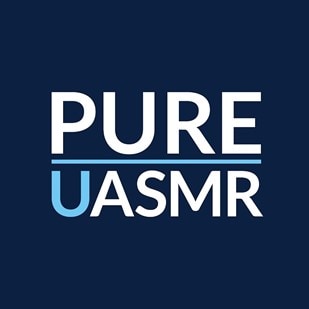
2. No talking ASMR
MassageASMR: Simply taking in the word “MassageASMR” puts us in a calmer and more collected state. His YouTube account, which has videos of massages in addition to more standard ASMR experiences and role-plays exams, thankfully does not let viewers down. You are going to get provoked but healthily. The ASMR 10 Hours of Tapping, Crinkle, and Trigger Sounds is ideal for falling asleep.
Subscribers: 882K+
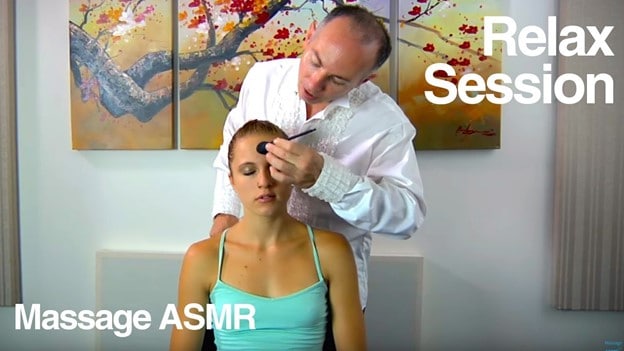
WhispersRed: Emma Smith, a person who had survived PTSD, created the pseudonym of WhispersRed after being inspired by GentleWhispering and started spreading musical love. She was the first ASMR performer to conduct the practice of ASMR live in a theater. In addition, she was trained as a sound therapist and a Reiki practitioner. Go to her channel, and you’ll quickly discover that you are in the capable hands of a female ASMR sleep video artist. The ASMR 3.5 hours of relaxing sound with no talking will help you calm your nerve after a stressful day.
Subscribers: 947K+
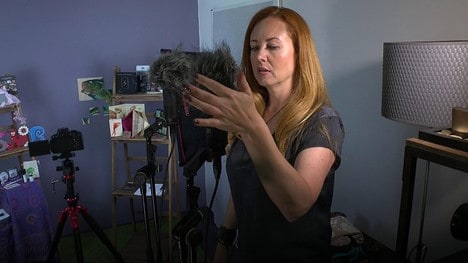
3. ASMR with rare triggers
ASMR Zeitgeist: Zeitgeist is like sensory artist and scientist wrapped into one since they are always open to accepting new and experimental approaches. Two years ago, he published an article titled “ASMR for People Who Don’t Get Tingles” to convert skeptics. Since then, it has had over 11 million views and an overwhelming number of good comments, which has convinced many previously skeptical people. If you’re having trouble dozing due to insomnia, you should check out ASMR NEXT LEVEL for Brain Melting Tingles and Deep Sleep.
Subscribers: 2.05M subscribers
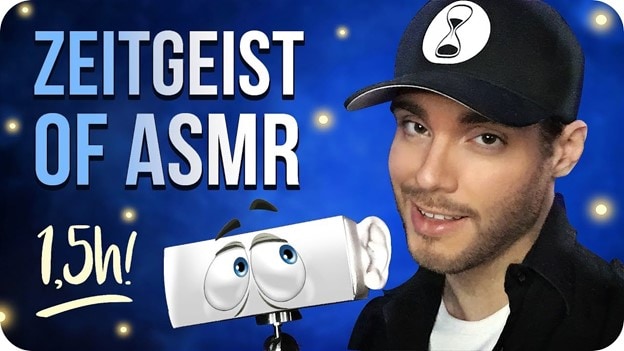
Part 3: How to Maximize the Effects of an ASMR?
So, now that you know what ASMR is and why does ASMR make you sleepy, here are some tips you can use in your daily life to maximize the positive effects of these sleep videos.
1. Turn off notifications, including vibration
A late-night phone call will undoubtedly wake you up. The solution is to mute phones before bed. Even silent phone vibrations might disrupt sleep. (30 dB might interrupt sleep) Even if you don’t wake up, it may create a lighter sleep period, leaving you unrested. Before bed, set “do not disturb.” During the stated time, it mutes calls, emails, and notifications—no ringing or buzzing. The content continues without warning. In an emergency, you may customize the mode to accept specific calls.
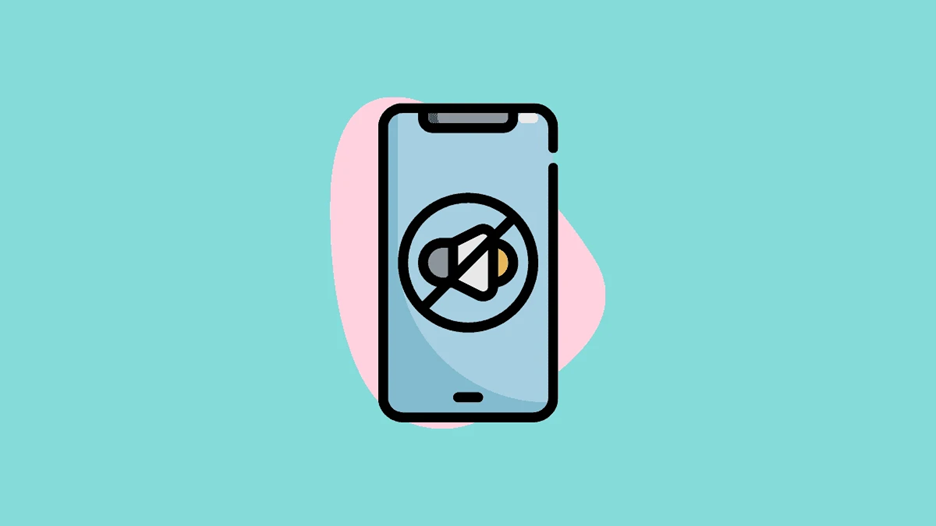
2. Turn off YouTube autoplay
YouTube’s autoplay function makes it much simpler to choose what to watch next on the platform. When you turn on autoplay, the following relevant video in the playlist will begin playing automatically when the previous video finishes playing. It continues playing videos, so you don’t have to choose a new video to view once the one you’re watching stops playing. To maximize ASMR sleep, you can switch off autoplay and avoid the discomfort of having to search for the back button to halt unwanted music frantically.
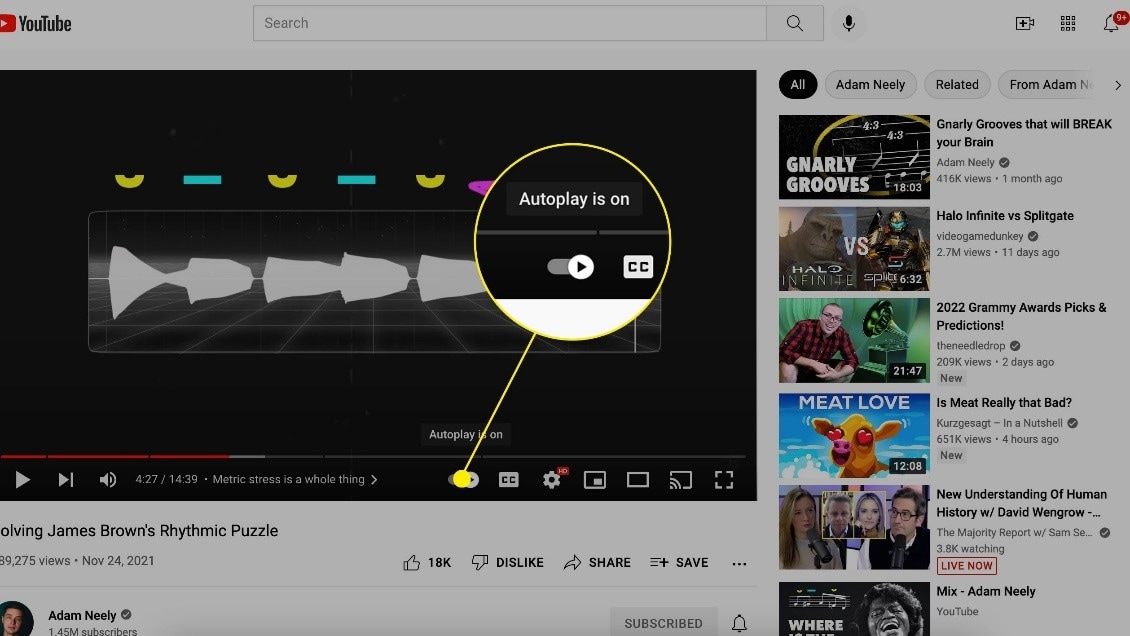
3. Stop finding the best sleeping position and focus on the ASMR
Instead of finding a good sleeping posture, watch an ASMR sleep video. According to how ASMR works, it does improve sleep. ASMR tends to boost brain regions related to dopamine and oxytocin, which promote tranquility and sleep. 82% of ASMR users utilize the feeling to rest. Most people use ASMR for relaxation. Bedtime is the most popular time for individuals to consume ASMR material, with 81% of respondents preferring listening or watching before falling asleep. Only 6% of respondents prefer morning ASMR.
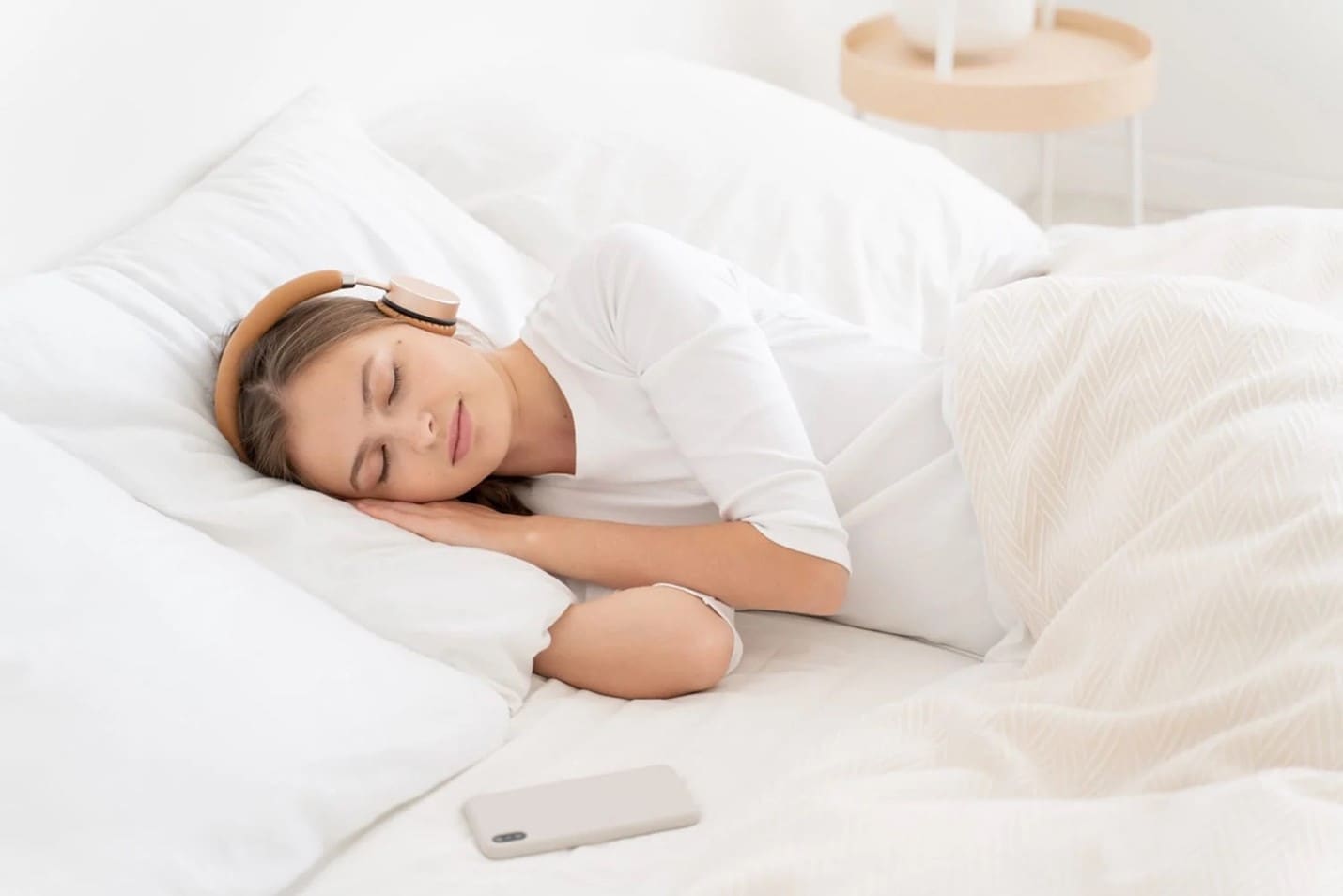
Part 4: FAQs
Why do I take so long to get to the point where I can fall asleep?
Caffeine use, stress, working irregular shifts, and traveling are all factors that might make it difficult to fall asleep. Sleep issues may also keep individuals awake at night. Your healthcare physician should be able to assist you in determining the cause of your prolonged difficulty falling or staying asleep.
Why is it that I keep getting awake in between sleep?
Some factors contributing to improper sleep include:
- Surfing the Internet till late,
- Eating a heavy dinner,
- Being on the phone for long hours,
- Having mental trouble with work or personal life,
- Monotonous routine,
- Lack of exercise,
- Drinking too much alcohol, coffee, or tea before bedtime, etc.
Conclusion
Thus, you finally have the answer to does ASMR help you sleep. Yes, ASMR is the profound relaxation and pleasurable scalp tingling that individuals experience in response to whispering or quiet sounds mixed with delicate motions and personal attention. This phenomenon got recognition in 2010 as some reported it helps them relax and sleep better. Some of these assertions may be true, despite the scant study. Understanding ASMR for sleep better allows you to decide whether it could work for you and how to incorporate it into your current sleep regimen. So, go to YouTube and listen to the best ASMR sleep videos listed above the next time you struggle to sleep.
Free Download For Win 7 or later(64-bit)
Free Download For macOS 10.14 or later

Pure Unintentional ASMR: This YouTube channel is quickly becoming one of the most well-known examples of unintended ASMR on the Internet. If you regularly consume involuntary ASMR sleep videos, you probably already know about this channel on YouTube. By John Butler, this is definitely the BEST unintended ASMR voice ever recorded. It has now been re-edited to maximize ASMR tingles.
Subscribers: 226k

2. No talking ASMR
MassageASMR: Simply taking in the word “MassageASMR” puts us in a calmer and more collected state. His YouTube account, which has videos of massages in addition to more standard ASMR experiences and role-plays exams, thankfully does not let viewers down. You are going to get provoked but healthily. The ASMR 10 Hours of Tapping, Crinkle, and Trigger Sounds is ideal for falling asleep.
Subscribers: 882K+

WhispersRed: Emma Smith, a person who had survived PTSD, created the pseudonym of WhispersRed after being inspired by GentleWhispering and started spreading musical love. She was the first ASMR performer to conduct the practice of ASMR live in a theater. In addition, she was trained as a sound therapist and a Reiki practitioner. Go to her channel, and you’ll quickly discover that you are in the capable hands of a female ASMR sleep video artist. The ASMR 3.5 hours of relaxing sound with no talking will help you calm your nerve after a stressful day.
Subscribers: 947K+

3. ASMR with rare triggers
ASMR Zeitgeist: Zeitgeist is like sensory artist and scientist wrapped into one since they are always open to accepting new and experimental approaches. Two years ago, he published an article titled “ASMR for People Who Don’t Get Tingles” to convert skeptics. Since then, it has had over 11 million views and an overwhelming number of good comments, which has convinced many previously skeptical people. If you’re having trouble dozing due to insomnia, you should check out ASMR NEXT LEVEL for Brain Melting Tingles and Deep Sleep.
Subscribers: 2.05M subscribers

Part 3: How to Maximize the Effects of an ASMR?
So, now that you know what ASMR is and why does ASMR make you sleepy, here are some tips you can use in your daily life to maximize the positive effects of these sleep videos.
1. Turn off notifications, including vibration
A late-night phone call will undoubtedly wake you up. The solution is to mute phones before bed. Even silent phone vibrations might disrupt sleep. (30 dB might interrupt sleep) Even if you don’t wake up, it may create a lighter sleep period, leaving you unrested. Before bed, set “do not disturb.” During the stated time, it mutes calls, emails, and notifications—no ringing or buzzing. The content continues without warning. In an emergency, you may customize the mode to accept specific calls.

2. Turn off YouTube autoplay
YouTube’s autoplay function makes it much simpler to choose what to watch next on the platform. When you turn on autoplay, the following relevant video in the playlist will begin playing automatically when the previous video finishes playing. It continues playing videos, so you don’t have to choose a new video to view once the one you’re watching stops playing. To maximize ASMR sleep, you can switch off autoplay and avoid the discomfort of having to search for the back button to halt unwanted music frantically.

3. Stop finding the best sleeping position and focus on the ASMR
Instead of finding a good sleeping posture, watch an ASMR sleep video. According to how ASMR works, it does improve sleep. ASMR tends to boost brain regions related to dopamine and oxytocin, which promote tranquility and sleep. 82% of ASMR users utilize the feeling to rest. Most people use ASMR for relaxation. Bedtime is the most popular time for individuals to consume ASMR material, with 81% of respondents preferring listening or watching before falling asleep. Only 6% of respondents prefer morning ASMR.

Part 4: FAQs
Why do I take so long to get to the point where I can fall asleep?
Caffeine use, stress, working irregular shifts, and traveling are all factors that might make it difficult to fall asleep. Sleep issues may also keep individuals awake at night. Your healthcare physician should be able to assist you in determining the cause of your prolonged difficulty falling or staying asleep.
Why is it that I keep getting awake in between sleep?
Some factors contributing to improper sleep include:
- Surfing the Internet till late,
- Eating a heavy dinner,
- Being on the phone for long hours,
- Having mental trouble with work or personal life,
- Monotonous routine,
- Lack of exercise,
- Drinking too much alcohol, coffee, or tea before bedtime, etc.
Conclusion
Thus, you finally have the answer to does ASMR help you sleep. Yes, ASMR is the profound relaxation and pleasurable scalp tingling that individuals experience in response to whispering or quiet sounds mixed with delicate motions and personal attention. This phenomenon got recognition in 2010 as some reported it helps them relax and sleep better. Some of these assertions may be true, despite the scant study. Understanding ASMR for sleep better allows you to decide whether it could work for you and how to incorporate it into your current sleep regimen. So, go to YouTube and listen to the best ASMR sleep videos listed above the next time you struggle to sleep.
Free Download For Win 7 or later(64-bit)
Free Download For macOS 10.14 or later
- Title: Top ASMRists Aiding the Nighttime Ritual
- Author: Daniel
- Created at : 2024-07-25 01:44:00
- Updated at : 2024-07-26 01:44:00
- Link: https://extra-resources.techidaily.com/top-asmrists-aiding-the-nighttime-ritual/
- License: This work is licensed under CC BY-NC-SA 4.0.







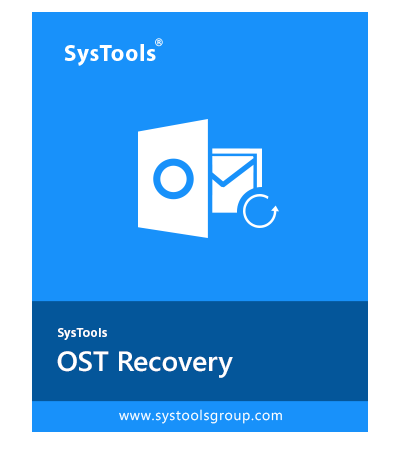

 SwifDoo PDF 2-Year Plan
SwifDoo PDF 2-Year Plan